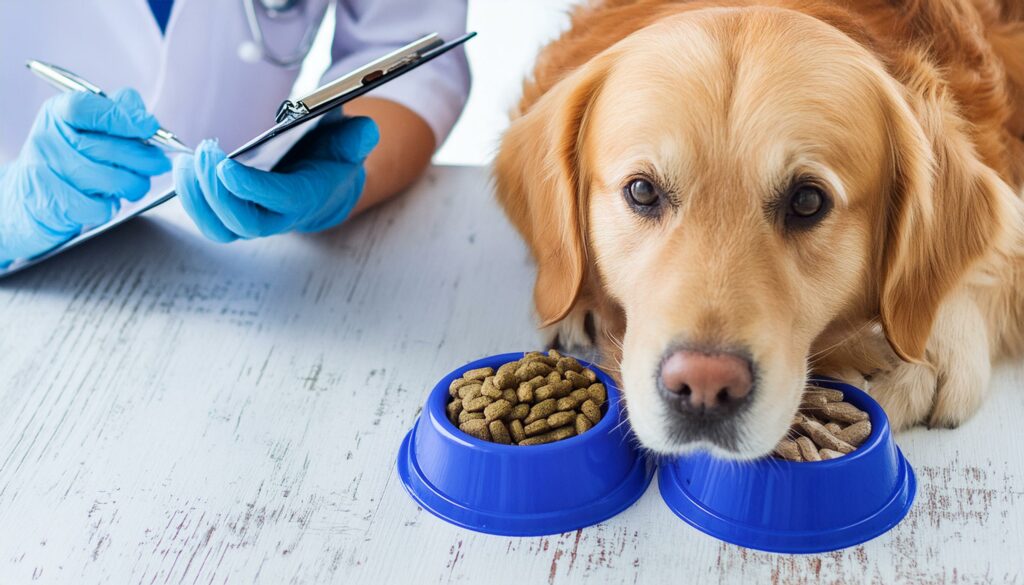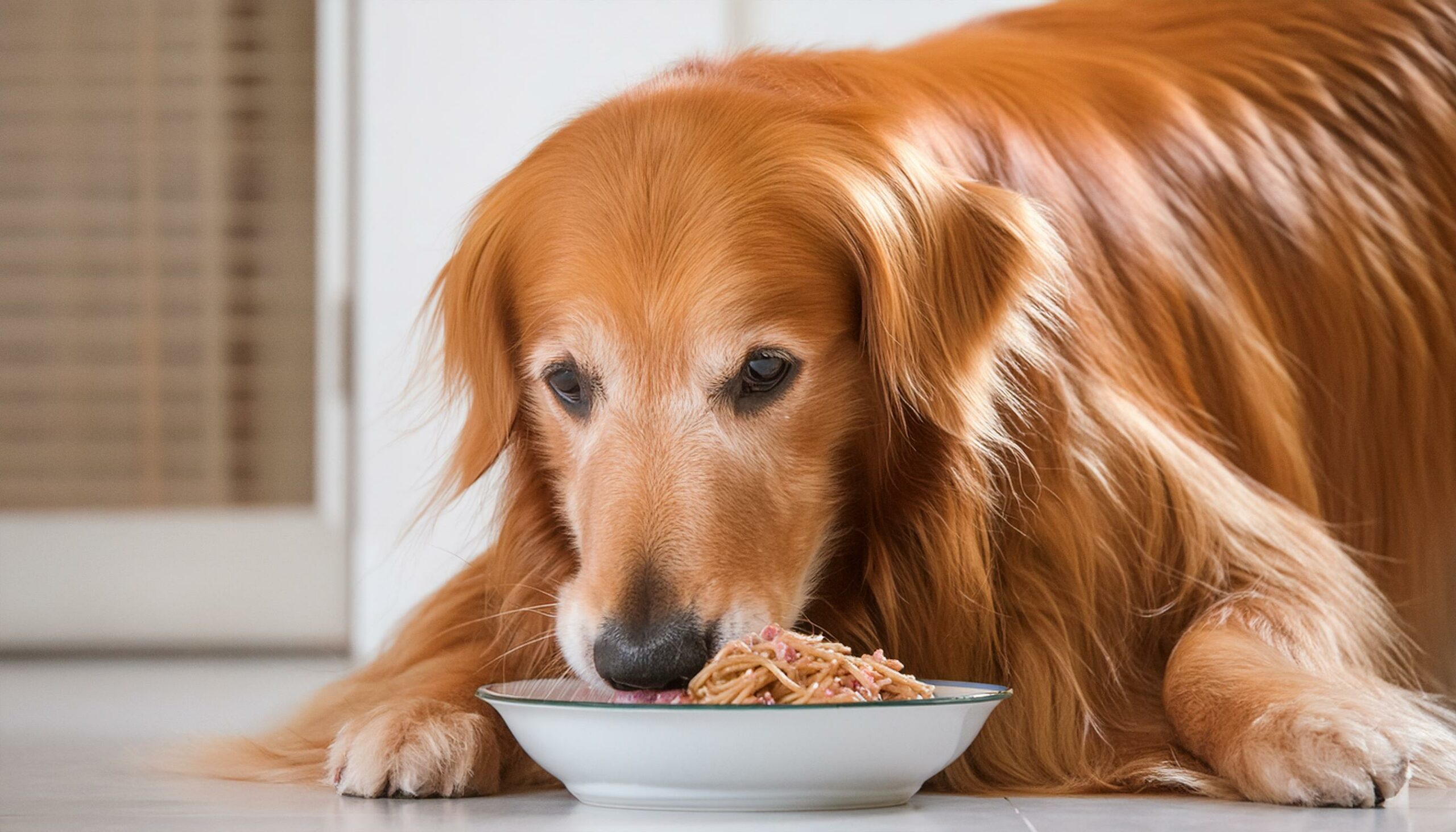Golden Retrievers, with their friendly demeanor and boundless energy, are cherished members of countless households worldwide. As responsible pet owners, it’s crucial to ensure that our furry companions are fed a diet that promotes their health and longevity. However, not all foods that are safe for humans are safe for our canine friends. In this comprehensive guide, we’ll explore the foods that Golden Retrievers should avoid and why.
Introduction to Golden Retrievers
Golden Retrievers are beloved for their gentle temperament, intelligence, and loyalty. They are popular family pets, therapy dogs, and service animals, known for their ability to form strong bonds with humans. These beautiful dogs require proper nutrition to support their active lifestyle and maintain optimal health.
Overview of Golden Retrievers’ Dietary Needs
Like all dogs, Golden Retrievers require a balanced diet consisting of protein, carbohydrates, fats, vitamins, and minerals. High-quality commercial dog food formulated specifically for their breed size and age is typically recommended. Additionally, fresh water should always be readily available to keep them hydrated.
Dangerous Foods for Golden Retrievers
Chocolate
Chocolate contains theobromine and caffeine, both of which are toxic to dogs. Even small amounts can cause vomiting, diarrhea, rapid breathing, increased heart rate, seizures, and in severe cases, death. It’s essential to keep all chocolate products out of reach of Golden Retrievers.
Grapes and Raisins
Grapes and raisins can cause kidney failure in dogs, leading to symptoms such as vomiting, diarrhea, lethargy, and decreased appetite. The exact toxic substance in grapes and raisins is still unknown, but even small quantities can be harmful. It’s best to avoid feeding any foods containing these ingredients to Golden Retrievers.
Garlic and Onions
Garlic and onions, whether raw, cooked, or powdered, contain compounds that can damage a dog’s red blood cells, leading to anemia. Symptoms may include weakness, lethargy, pale gums, and increased heart rate. All forms of garlic and onions, including onion powder and garlic salt, should be kept away from Golden Retrievers.
Avocado
Avocado contains persin, which can cause vomiting and diarrhea in dogs. While the flesh of the avocado is less toxic than the pit and skin, it’s best to avoid feeding any part of the avocado to Golden Retrievers. The pit poses a choking hazard, and the high-fat content may lead to pancreatitis.
Xylitol
Xylitol, a common sweetener found in sugar-free gum, candy, baked goods, and peanut butter, is highly toxic to dogs. It can cause a sudden release of insulin, resulting in hypoglycemia (low blood sugar), seizures, and liver failure. Even small amounts of xylitol can be deadly to Golden Retrievers, so it’s crucial to check ingredient labels carefully.
Harmful Effects of These Foods on Golden Retrievers

Consumption of these toxic foods can have serious and potentially life-threatening consequences for Golden Retrievers. Immediate veterinary attention is necessary if ingestion occurs. Treatment may include inducing vomiting, administering activated charcoal, intravenous fluids, and supportive care to manage symptoms.
Symptoms of Food Poisoning in Golden Retrievers
Symptoms of food poisoning in Golden Retrievers may include vomiting, diarrhea, lethargy, loss of appetite, abdominal pain, weakness, seizures, and collapse. It’s essential to monitor your dog closely and seek veterinary care if any concerning symptoms develop.
Steps to Take If Your Golden Retriever Ingests Harmful Foods
If your Golden Retriever ingests any of the aforementioned toxic foods, contact your veterinarian or an emergency animal clinic immediately. Do not attempt to induce vomiting unless instructed to do so by a professional. Be prepared to provide information about the type and quantity of food ingested, as well as your dog’s current symptoms.
Safe Alternatives for Golden Retrievers
To keep your Golden Retriever safe and healthy, provide them with nutritious treats such as cooked lean meats (e.g., chicken, turkey), fresh fruits (e.g., apples, blueberries, bananas), and vegetables (e.g., carrots, green beans). These alternatives are not only safe but also provide essential vitamins and minerals that contribute to your dog’s overall well-being. Always consult with your veterinarian before introducing new foods into your dog’s diet.
Importance of Consulting a Veterinarian
If you have any concerns about your Golden Retriever’s diet or suspect they may have ingested something harmful, seek professional veterinary advice immediately. Your veterinarian can offer guidance tailored to your dog’s specific needs and help prevent potential health risks. Regular check-ups and open communication with your veterinarian are essential for maintaining your dog’s health and happiness.
Conclusion
In conclusion, while Golden Retrievers bring joy and companionship into our lives, it’s crucial to be mindful of what they consume. Certain foods that are safe for humans can be toxic to dogs, including chocolate, grapes, onions, avocado, and xylitol. By understanding and avoiding these harmful foods, you can help protect your Golden Retriever’s health and ensure they live a long, happy life as a cherished member of your family.
Unique FAQs:
Can I give my Golden Retriever peanut butter?
Yes, but ensure it does not contain xylitol, as it is toxic to dogs. Opt for natural peanut butter without added sugars or artificial sweeteners.
Are there any human foods that Golden Retrievers can safely eat?
Yes, certain fruits and vegetables, such as apples, blueberries, carrots, and green beans, can be given as treats in moderation.
How can I prevent my Golden Retriever from accessing harmful foods?
Yes, certain fruits and vegetables, such as apples, blueberries, carrots, and green beans, can be given as treats in moderation.
How can I prevent my Golden Retriever from accessing harmful foods?
Store all human foods securely out of reach, and be cautious when preparing or serving meals to ensure your dog does not ingest anything harmful.
What should I do if my Golden Retriever exhibits symptoms of food poisoning?
Contact your veterinarian immediately for guidance. Do not attempt to treat your dog at home without professional advice.
Is it necessary to consult a veterinarian before changing my Golden Retriever’s diet?
Yes, consulting with a veterinarian is recommended to ensure that any dietary changes are safe and appropriate for your dog’s individual needs.
